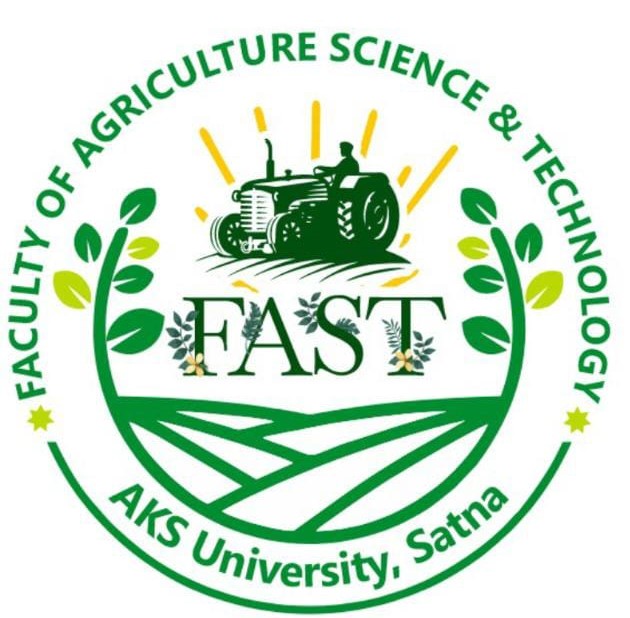Department of Agriculture Science
Overview of the Department
ICAR accreditation ensures that our curriculum is aligned with national benchmarks and industry needs, preparing students to meet the challenges of modern agriculture. It also enhances the department’s credibility, opening doors to collaborative projects, scholarships, and career opportunities in both public and private sectors.
Our department focuses on developing innovative, sustainable, and science-driven solutions to enhance agricultural productivity and rural development. With a student-centered approach, we strive to nurture future leaders, researchers, and professionals who can contribute significantly to the advancement of agriculture in India and globally.
Vision

Mission
M-2: Foster a culture of curiosity, creativity, and critical thinking, encouraging students to explore new ideas, conduct research, and develop innovative solutions to agricultural problems.
M-3: We empower students to become leaders and change-makers in the agricultural industry and beyond. Through experiential learning, leadership development programs, and opportunities for community engagement and service learning, we help students develop the confidence, communication skills, and ethical awareness needed to make positive contributions to society.
M-4: We are dedicated to advancing the frontiers of agricultural knowledge through cutting- edge research and innovation.
M-5: We recognize the importance of agriculture in addressing global challenges such as hunger, poverty, environmental degradation, and climate change.
Prof. Neeraj Verma
M.Sc. in Botany, Ph.D. in Botany (Plant Pathology), AMU, Aligarh
Associate Dean & Head of the Department Department of Agriculture Science (UG)AKS University, Satna (M.P.) India – 485001

Message
Agriculture is the foundation of human civilization, providing the food, fiber, and resources essential for life. It encompasses the cultivation of crops, raising of livestock, and production of raw materials like cotton and biofuels. Modern agriculture blends traditional practices with advanced technologies to boost productivity and sustainability. From small family farms to large-scale agribusinesses, agriculture supports economies, creates jobs, and sustains communities. As global populations grow, the industry faces challenges like climate change, soil depletion, and water scarcity. Embracing innovation and sustainable practices is key to ensuring a resilient agricultural future and securing food for generations to come.
The B.Sc. (Hons) Agriculture program offered by the Department of Agriculture Science at AKS University, Satna is proudly accredited by the Indian Council of Agricultural Research (ICAR). This accreditation reflects the department’s commitment to maintaining high academic standards, quality education, and practical training aligned with national agricultural education frameworks. The program is designed to equip students with scientific knowledge, technical skills, and a research-oriented mindset to excel in modern agriculture and related industries. Through this ICAR-recognized course, AKS University aims to produce competent agri-professionals dedicated to innovation, sustainability, and rural development.
The department is committed to the holistic development of students by providing multi-dimensional scientific training in research, development, and industrial aspects. This equips them to pursue higher education and secure successful careers as researchers, academicians, or entrepreneurs. The department boasts dedicated and highly qualified faculty members who are proactive in instilling research aptitude, skills, and curiosity in students.
Beyond academics, students are encouraged to participate in co-curricular and extra-curricular activities and are made aware of their social responsibilities. Overall, our aim is to groom students with strong ethics, knowledge, skills, enthusiasm, and determination so that they can stand competent and confident at every frontier of their careers and in their personal and social lives.
Graduate Attributes (GA)
1. Technical Knowledge: Apply knowledge of agricultural science, biology, soil science, and technology to solve complex problems, improve crop production, and address challenges in sustainable farming and rural development.
2. Problem Findings: Identify, analyze, and evaluate complex agricultural issues such as pest management, soil degradation, and climate impact using scientific methods and interdisciplinary approaches to develop effective, sustainable solutions.
3. Skill Development: Develop practical and technical skills in crop management, farm machinery handling, irrigation techniques, and agribusiness, while enhancing communication, leadership, and problem-solving abilities for sustainable agricultural practices.
4. Research Oriented Learning: Apply scientific research methods, including field experiments, data collection, and analysis, to investigate agricultural problems, improve farming techniques, and develop innovative, sustainable solutions for enhanced crop and soil productivity.
5. Technical Development: Gain hands-on experience with modern agricultural tools, machinery, precision farming technologies, and digital platforms to enhance productivity, resource management, and decision-making in sustainable agricultural practices.
6. Contribution in Society Development: Address societal needs by promoting food security, sustainable farming, rural employment, and eco-friendly practices, while raising awareness about health, nutrition, and the socio-economic impact of agricultural development.
7. Environment and Sustainability: Promote eco-friendly farming practices, conserve natural resources, reduce pollution, and ensure long-term soil fertility and biodiversity to support sustainable agricultural development and protect the environment for future generations.
8. Ethics: Uphold ethical standards in farming by ensuring fair labor practices, responsible use of resources, animal welfare, and honesty in food production, while respecting environmental laws and community values.
9. 3Ts: Efficiently manage time during farming operations, work collaboratively in teams for agricultural projects, and execute tasks systematically to improve productivity, resource use, and overall farm management.
10. Project and Practical Skills: Apply agricultural principles to manage projects, from crop cultivation to livestock management, using hands-on skills in irrigation, pest control, and farm planning to optimize productivity and sustainability.
11. Life-long Learning: Continuously update knowledge on evolving agricultural techniques, innovations, and sustainable practices, embracing new technologies, research findings, and global trends to adapt to changes and improve farming practices throughout one’s career.

